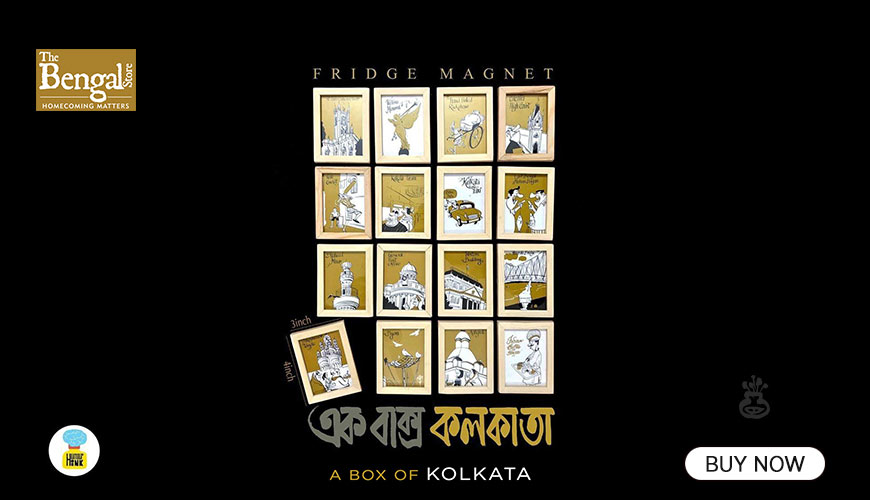It takes two to Tango – When British traditions met the native culture
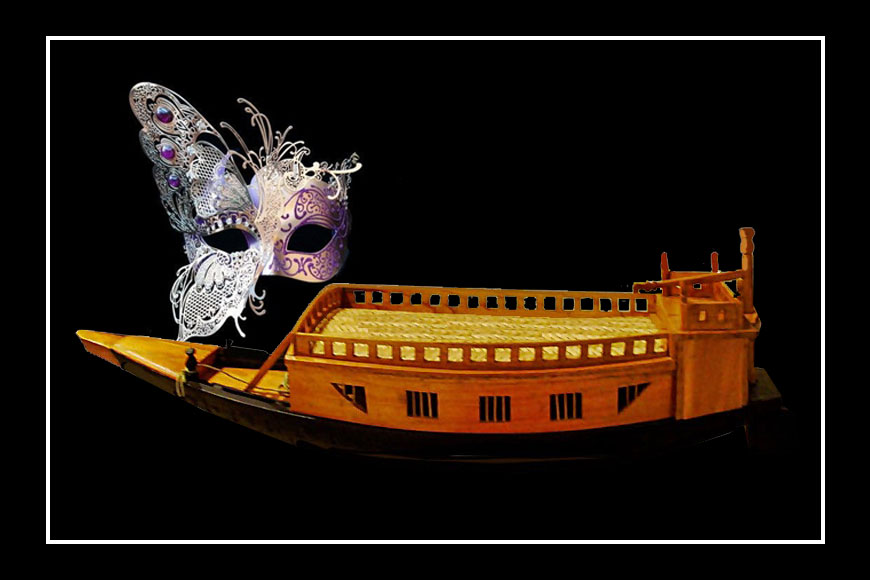
Once upon a time social life in old Calcutta was grand and the European community was always on the look out for recreation, far from their own homes in England. The recreational activities were so popular, specially during winter months, that as per an article in the Calcutta Gazette, in 1788:
“Such are the attractions of Calcutta during the present cold season that two ladies who intended to return to Europe on the Phoenix, have, we understand, lately resolved to remain for the present, and to proceed on one of the last ships.”
Tickets to the masquerades were sold at 2 Gold Mohurs each, and the show was followed by a delicious supper. The Calcutta Gazette says tickets to the event as well as masks were available at the Harmonic Tavern, the most gorgeous building in Old Calcutta famous for its winter concerts, balls and suppers.
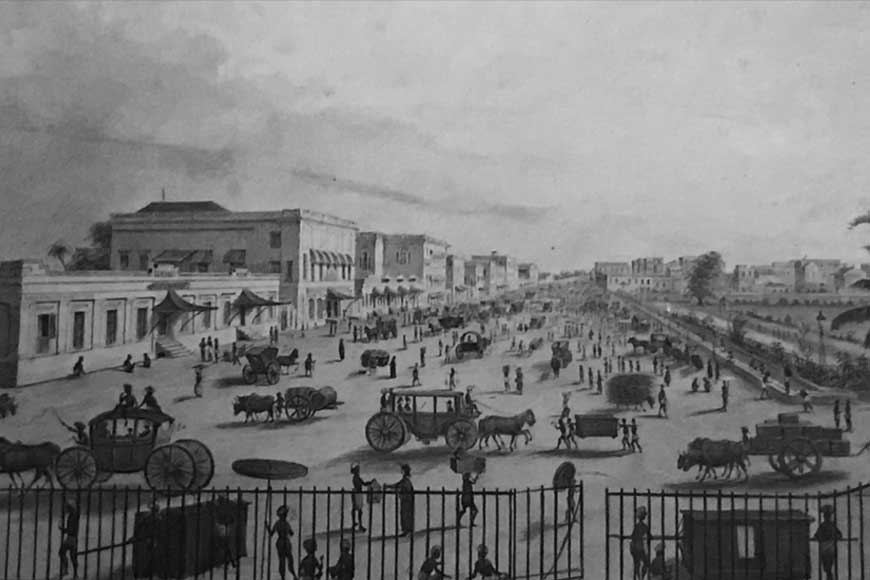
An extremely popular form of entertainment was Masquerades, mostly for the European community in Calcutta. The Calcutta Gazette mentions one such masquerade held on March 24th, 1785. For this event, “The rooms and tents were fitted up with taste, in a style entirely new in this country.” The main characters of the masquerade were:
Two gypsies, very smart and witty in their questions and replies… two Boarding School Misses and their Governess, a French Beau and Belle, three admirable Sailors, who sung a glee… a very good Milkmaid, a smart Ballad Singer… a fortune-telling Gypsy, a Joghee (yogi), a Soldier… a French Pastry Cook.
Tickets to the masquerades were sold at 2 Gold Mohurs each, and the show was followed by a delicious supper. The Calcutta Gazette says tickets to the event as well as masks were available at the Harmonic Tavern, the most gorgeous building in Old Calcutta famous for its winter concerts, balls and suppers. For these lavish balls and masquerades, it was necessary for the ladies to dress up. In the ‘Europe shops’, hats and laces could be purchased, and professional hairdressers offered their services. The Calcutta Gazette records the advertisement of one Mrs Arend, who “dresses hair in the neatest and most fashionable manner” and “will wait upon any Lady at her own house on the shortest notice.”
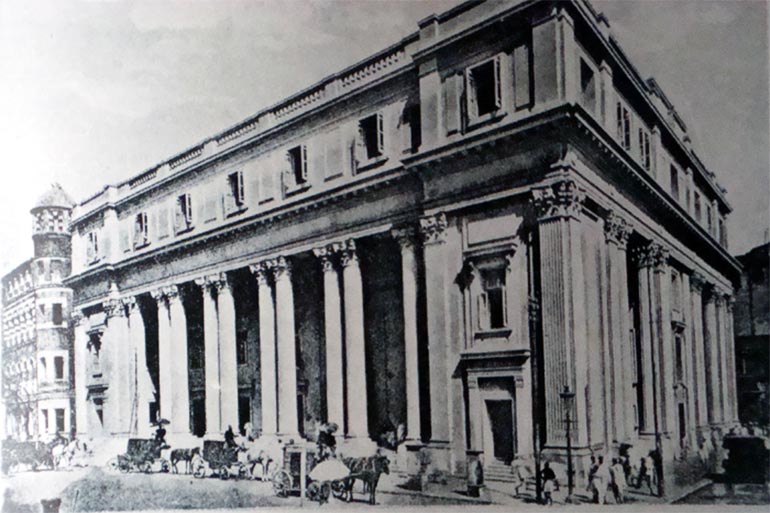 Calcutta Exchange Coffee House
Calcutta Exchange Coffee House
Several ‘taverns’ and ‘coffee houses’ also came up, that turned into a hub of the elite and fashionable Englishmen. The ‘Calcutta Exchange Coffee House’ opened in 1798 but the most aristocratic coffee house was ‘John Spence Coffee House.’ In winter, aristocratic Europeans as well as rich natives gathered there to enjoy a ball dance and supper.
Another entertainment was Lottery. It was given the name of ‘fashionable gambling.’ In 1784, the Calcutta Gazette noted that the demand for tickets to the Calcutta lottery was “astonishingly great”. The lottery ‘wheels’ were made by Nicholls and Howat, “upon the same construction as those used for the State Lotteries in England.” The price of a lottery ticket in the 1780s was 100 Sicca Rupees.
Several ‘taverns’ and ‘coffee houses’ also came up, that turned into a hub of the elite and fashionable Englishmen. The ‘Calcutta Exchange Coffee House’ opened in 1798 but the most aristocratic coffee house was ‘John Spence Coffee House.’ In winter, aristocratic Europeans as well as rich natives gathered there to enjoy a ball dance and supper. The Neo-Elite class of Bengal was also influenced by the taverns and coffee houses.
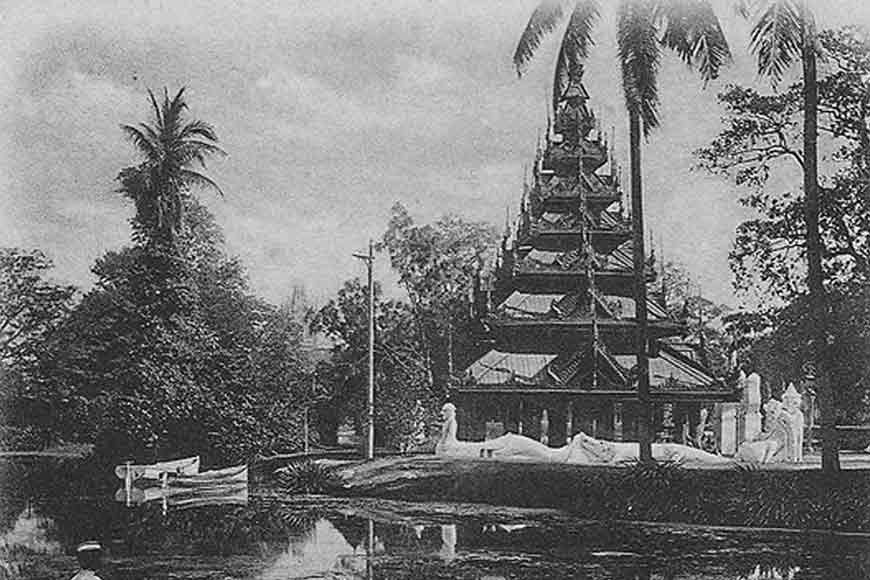 Eden Garden
Eden Garden
Boat rides on bajras or pleasure boats were another source of recreation for the European as well as the native population of the city. Many English gentlemen at sunset, also “took a leisurely stroll around the great tank in Lal Dighi under orange trees.” The best pleasure garden in colonial Calcutta was Auckland Circus Garden. Eden Garden was built in 1840 on the initiative of Emily Eden and Fann Eden, sisters of Governor-General Lord Auckland. The rich natives also took a ride in the “gorer math” or Kolkata maidan, in horse-drawn carriages in the evenings.
Come winter, the British knew how to have fun for sure.







